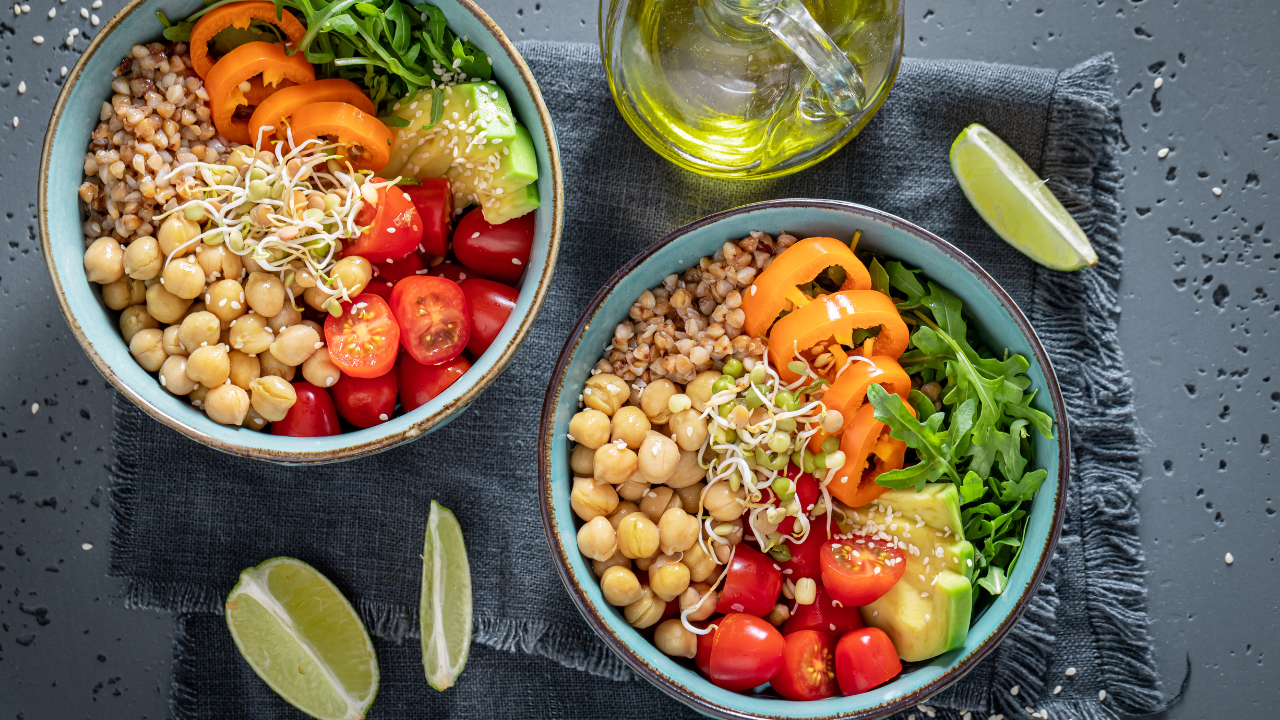Carbohydrates 101: Types, Sources, and Benefits of Carbs
This post was written by Maria Beyer, a Nutrition & Dietetics undergraduate student at the University of Delaware. You can find her on Instagram @bitestolife. Content reviewed by Hannah Thompson, RDN, LD, CPT.
Carbohydrates are so controversial in diet culture. Of the three macronutrients (carbs, fats, and protein), carbs definitely have the worst reputation. In the media, “cutting out carbs” is a huge diet trend that promises instant weight loss. Spoiler! Carbs are the body’s main source of fuel and anything nutrition related that promises a quick and instant outcome shouldn’t be taken seriously. The fear and demonization of carbs couldn’t be more deceiving and far from the truth!
The three types of carbs (and where to find them)
Sugar
Sugars that you may have heard of include glucose, fructose, galactose, sucrose, lactose, and maltose. These can be found naturally in foods such as fruit (fructose), milk (lactose) and even beer (maltose). Avoiding these foods because they contain “sugar” ultimately doesn’t change anything - your body will break starches and vegetables down to glucose, the main sugar in our bodies. Whether you eat a potato, a carrot, or a brownie, it will be converted to simple sugars for energy.
Added sugars on nutrition labels are sugars that are introduced when food is processed. Hidden names for added sugars include high fructose corn syrup, molasses, table sugar, cane sugar, and nectar, to name a few. While these sugars are not naturally occurring, they can still be included in a healthy diet in moderation.
Starches
Another type of carbohydrate is starches, which are also referred to as complex carbohydrates. These are bigger molecules that are harder for the body to break down which aids in lower blood sugar levels. Examples include whole grains, beans, oats, quinoa, and all potatoes. These starches are also converted into glucose for energy when digested by the body.
Fiber
Finally, the third type of carb is fiber. Fiber is indigestible and comes strictly from plant foods. It keeps you regular because it is not digested by the body and helps everything pass through! Some take fiber supplements, but popular dietary sources to get in are avocados, beans, whole grain popcorn, apples, and nuts. It has SO many benefits - keeping you fuller for longer, gut health, reducing disease risk, and strengthening your immune system! When adding fiber to the diet, be sure to do it in moderation with lots of fluid for the body to adjust and reduce cramps and bloating.
What’s the deal with carb cutting?
We’ve gone over some great benefits of carbohydrates, but here’s some more:
Improving mood
Having steady energy
Regulating blood cholesterol
To function as a human being - carbs fuel the brain and every other organ!
The number one diet that is searched daily is the keto diet. Cutting out carbs will quickly cause the body to lose water weight, but that’s really it. Those who start these diets experience weakness, fatigue, dizziness, brain fog, and low mood. Plus, it’s really hard to do. The benefit of losing water weight doesn’t affect actual weight and frankly, nobody is able to stick with it long term. WIthout fiber, dieters experience constipation and a dip in blood sugar levels as well. It also causes your liver and kidneys to struggle because of an excess fat intake. Diets like keto are detrimental weight loss strategies, and as we know, starving the body of the things it needs is no way to live a “healthy lifestyle”.
Bottom Line
Carbohydrates are essential to feeling your best. Eating starchy vegetables like sweet potatoes or corn, whole grains such as quinoa or oats, and all types of fruits have an abundance of carbohydrates and are incredibly beneficial for stable mood, energy, and organ function. According to the Dietary Guidelines for Americans, carbs should make up around half of an adult’s total calories (45-65%)! It’s recommended to not get most of your carbohydrates from processed sources containing added sugars, but all foods can fit and be enjoyed!
































